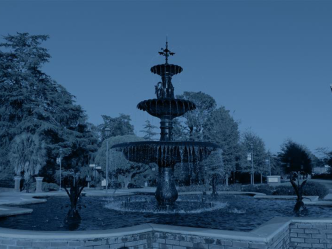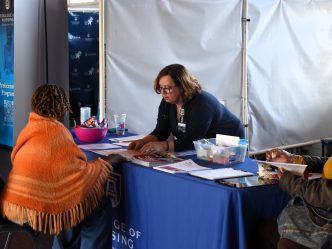As thousands of linemen, utility crews, emergency personnel, debris removal crews and volunteers have been working in Augusta in the wake of Hurricane Helene, another group is in business now, too: scammers.
Whether through phishing emails, fake websites, AI-generated imagery or phone call scams, cyber threat actors are taking advantage of a fraught situation.

Russel Parham, the governance, risk, and compliance manager for Augusta University’s Cyber Defense Department, isn’t surprised at all.
“There are scammers out there and other malicious actors and miscreants who are going to take advantage of people in need,” he said. “It’s an opportunity. It’s not personal for them; it’s just business.”
And that business could cost you.
“There’s an expression that they have – ‘don’t let a natural disaster go to waste,’” said Parham. “They’ll pounce on these opportunities and send out scams for victims of natural disasters, and most of those victims aren’t focused on cyber threats, they’re focused on other things like the tragedy their family is going through. So, they’re more likely to provide credit card information for potential aid if their house isn’t livable, for example.”
The Cyber Defense team recommends taking caution when opening emails and browsing online. Scams may include:
- Fake donation sites
- AI-assisted social media posts which include dramatic AI-generated images
- Fake assistance sites offering financial aid through loans
- Phone call scams where the caller will pretend to be a relative or a close friend asking for money
Parham recommends inspecting incoming emails for suspicious links or attachments and being wary of unexpected phone calls. He also urges victims of Hurricane Helene to be cautious as they browse the web and attempt to find information on utilities and other status updates. Finally, he and the Cyber Defense team advise not to download random or unapproved apps to AU devices while working remotely and not to share AU computers with others for personal use.
If the above reminders sound familiar, it’s because the Cyber Defense and Information Technology departments hold quarterly and yearly awareness campaigns at AU. That includes an upcoming training program for all faculty, staff and students beginning on Tuesday, Oct. 22, in coordination with National Cyber Security Awareness Month.
“Education, training and awareness is really important because this is the time to be thinking about cyber security,” Parham said. “It’s not on our best days that hackers or scammers are going to be reaching out and trying to take advantage of you. It’s going to be on our worst day.”

 Augusta University
Augusta University




